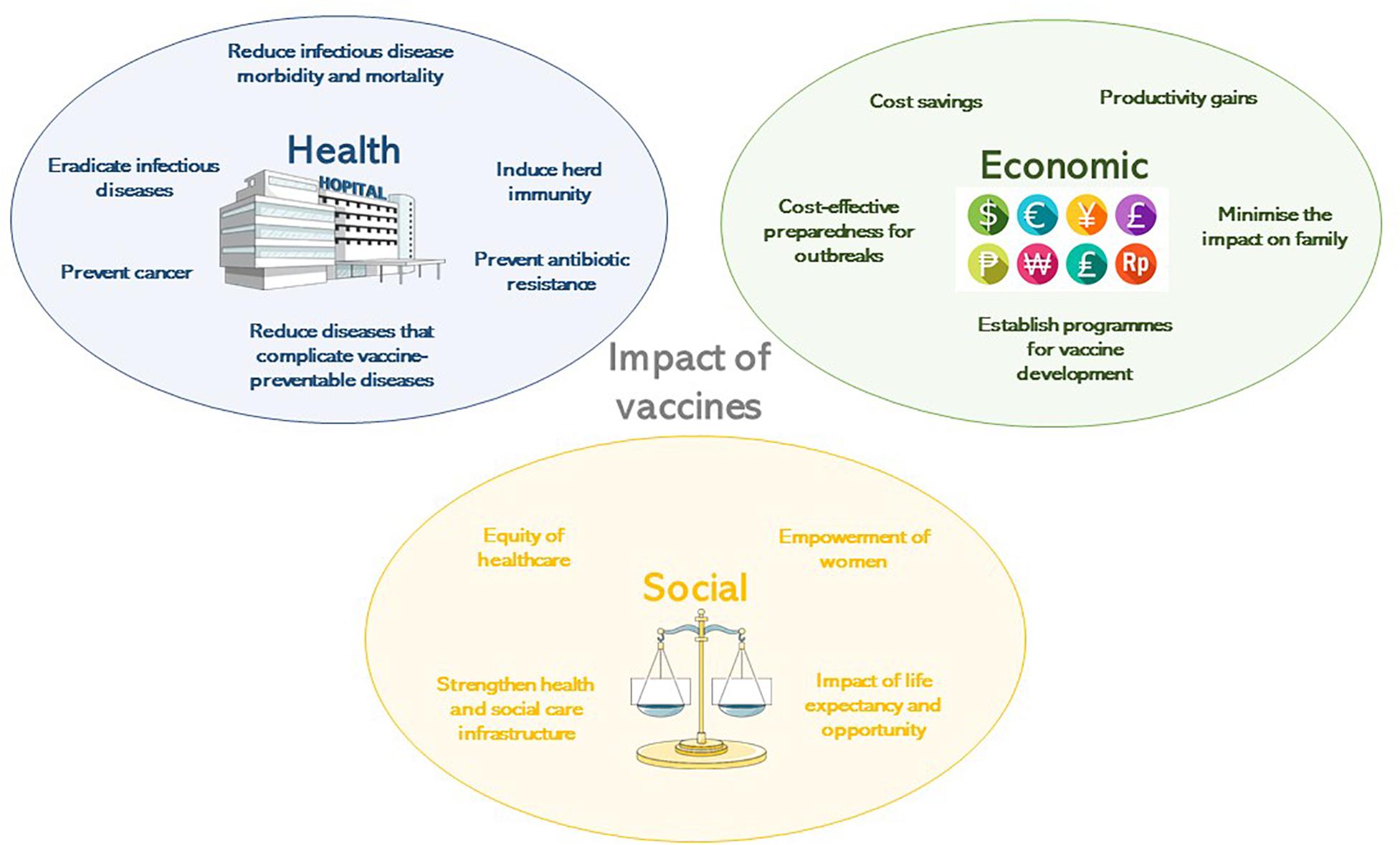This article seeks to illuminate the intricate relationship between vaccine policy, economics, and public health, exploring the challenges and opportunities in navigating this delicate balance.

The Economic Case for Vaccination
The economic benefits of vaccination are substantial and multi-faceted. Beyond the direct savings in healthcare costs associated with preventing disease, vaccination programs contribute significantly to broader economic prosperity.
Reducing Healthcare Burden: Vaccinations prevent illness, hospitalization, and long-term disability, thereby reducing the strain on healthcare systems and lowering overall healthcare expenditure.
Boosting Workforce Productivity: When individuals are vaccinated, they are less likely to miss work due to illness, contributing to increased productivity and economic output.
Supporting Economic Growth: Healthy populations are more productive and innovative, driving economic growth and development. Vaccinations play a crucial role in fostering this environment.
Mitigating Vaccine-Preventable Outbreaks: The cost of dealing with outbreaks of vaccine-preventable diseases, such as measles or influenza, can be staggering, involving increased healthcare expenses, lost productivity, and potential disruption to business and travel. Vaccination programs effectively mitigate these costs, contributing to economic stability.
The Challenges of Vaccine Policy
Despite the clear economic benefits, implementing effective vaccine policies faces several challenges:
- Vaccine Hesitancy: Vaccination hesitancy remains a significant obstacle, driven by misinformation, mistrust in authorities, and cultural beliefs. Addressing vaccine hesitancy requires culturally sensitive communication strategies, building trust through transparency and engagement, and countering misinformation with factual evidence.
- Equity in Access: Ensuring equitable access to vaccines is crucial for protecting the most vulnerable populations. This requires addressing disparities in healthcare access, affordability, and awareness.
- Balancing Individual Rights with Public Health: Vaccinations raise ethical questions about individual autonomy versus collective responsibility. Striking a balance between individual rights and the need to protect public health is a complex and ongoing debate.
- Evolving Pathogens: The emergence of new variants and drug-resistant pathogens necessitates continuous research and development of updated vaccines, requiring significant financial investment.
The Role of Economics in Vaccine Policy
Economic considerations play a vital role in shaping vaccine policy. Key policy decisions often hinge on cost-benefit analyses, evaluating the economic impact of various vaccination strategies.
- Cost-Effectiveness Analysis: This approach assesses the cost of vaccination programs against the potential health and economic benefits, helping to allocate resources efficiently.
- Public-Private Partnerships: Governments often collaborate with pharmaceutical companies and other stakeholders to develop, manufacture, and distribute vaccines, leveraging expertise and resources from the private sector.
- Subsidies and Incentives: Governments may provide financial subsidies or incentives to encourage vaccination uptake and ensure affordability for underserved populations.
- Pricing Policies: Governments must carefully consider vaccine pricing policies to ensure affordability while incentivizing innovation and research.
International Cooperation and Global Burden
Addressing global vaccine inequity requires international cooperation. Organizations like the World Health Organization (WHO) and Gavi, the Vaccine Alliance, play a crucial role in coordinating vaccine efforts, providing technical assistance, and facilitating access to vaccines for low-income countries.
FAQ
Q: Why are some people hesitant about vaccines?
A: Vaccine hesitancy stems from various factors, including misinformation, mistrust in authorities, concerns about side effects, and cultural or religious beliefs.
Q: How do governments address vaccine hesitancy?
A: Governments employ multifaceted strategies to address vaccine hesitancy, such as public education campaigns, engaging with community leaders, improving transparency around vaccine development and safety, and providing accurate information to counter misinformation.
Q: Is universal vaccination always the most cost-effective approach?
A: While universal vaccination is generally the most cost-effective strategy, targeted vaccination programs may be appropriate in specific contexts, such as during outbreaks or for vulnerable populations.
Q: What is the role of the private sector in vaccine development and distribution?
A: The private sector plays a crucial role in vaccine research, development, manufacturing, and distribution. Public-private partnerships are often essential for ensuring access to affordable vaccines.
Q: How do global organizations contribute to vaccine equity?
A: Organizations like the WHO and Gavi work to coordinate global vaccine efforts, provide technical assistance to countries, and facilitate access to vaccines for low-income countries.
Conclusion
Vaccine policy represents a balancing act between individual rights, public health, and economic considerations. Navigating this complex landscape requires a multifaceted approach that incorporates scientific evidence, public trust, ethical principles, and robust economic analysis.
By continuing to invest in vaccine research and development, addressing vaccine hesitancy through transparent and effective communication, and ensuring equitable access to vaccines across the globe, we can harness the transformative power of immunization to safeguard current and future generations.
Closure
Thus, we hope this article has provided valuable insights into Vaccine policy and economics. We thank you for taking the time to read this article. See you in our next article!